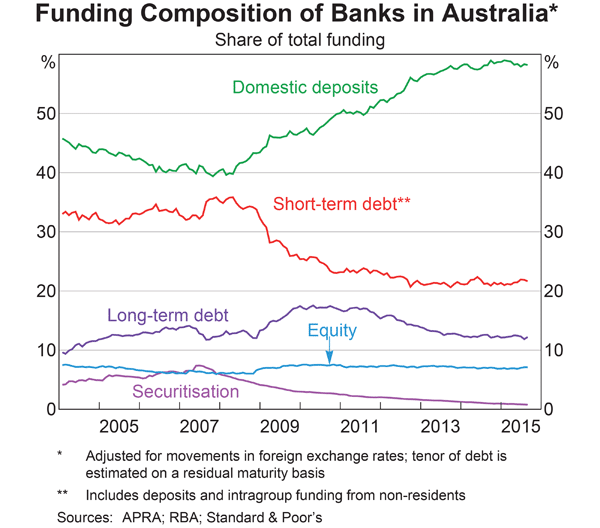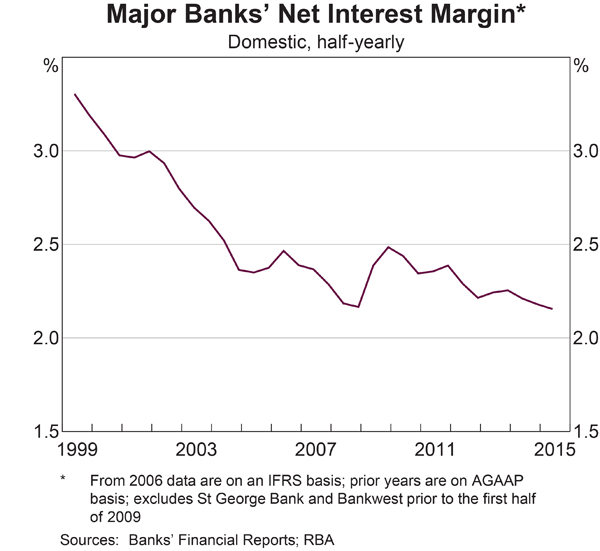Aussie banks? Profitable? Get real
Ironically, record profits have coincided with record low net interest margins for the big four banks. What does it mean for you?
As bank reporting season gets underway, you'll read everywhere that shareholders of Australia's big four banks are practically drowning in profits. ANZ, National Australia Bank, Commonwealth Bank and Westpac are expected to report more than $30bn in collective net profit.
With a colossal market valuation of $406bn, the big four account for 30% of the S&P/ASX 200 index. No wonder they form the bedrock of most Australian share portfolios. But what if the banks don't have quite the power you believe?
One of the biggest fears during the GFC was the ability of the big banks to secure long-term wholesale funding overseas. Thankfully, this is one metric that is genuinely improving. The banks have been rolling over these loans at much lower rates since the GFC, and they've significantly increased domestic deposits, which is the most stable form of funding (see chart).
 While funding is now more reliable and costs have come down, competition, on the other hand, has been rising.
While funding is now more reliable and costs have come down, competition, on the other hand, has been rising.
The 'Net Interest Margin' measures the difference between the interest a bank pays on its funding, such as deposits, and the interest it receives from making loans, such as mortgages. The net interest margin is a good proxy for the intensity of competition within the industry. All things being equal, as competition increases, margins and returns on capital should decline.
Given the dominance of the big four banks, which write over 90% of Australian mortgages, you might be surprised to learn that their collective net interest margin has fallen from nearly 6% in the late 1980s to just over 2% today (see chart). How could this be?
 The industry has become more concentrated since the GFC, helped by Commonwealth's acquisition of BankWest and Westpac's acquisition of St George, but at the retail level, things have changed.
The industry has become more concentrated since the GFC, helped by Commonwealth's acquisition of BankWest and Westpac's acquisition of St George, but at the retail level, things have changed.
In the early 1980s the Campbell Report paved the way for widespread deregulation of the banking industry. Before the reforms, banks were forced to ration credit, so they were more selective about whom they lent to. This meant your loyalty to the bank was a major factor in determining whether you were on the approved list … and there's nothing like a captive customer to support profit margins.
Deregulation also allowed new entrants to compete separately for the most profitable products. So, even though the industry has become more concentrated, individual product lines are more competitive. The internet has made it even easier to switch banks and that greater level of mobility has meant banks now find it harder to cross-sell products without offering a competitive rate.
That's great news for customers, but what does it mean for shareholders? For starters, net interest margins will be very hard to increase going forward. It also means there will be a focus on cutting costs to drive profit growth, as we've seen over the past few years. Finally, it means that having a large retail deposit base is more valuable than ever because depositors are typically less picky about the returns they get than wholesale investor funding. All this favours the biggest players, Commonwealth Bank and Westpac.
To get more insights, stock research and BUY recommendations, take a 15 day free trial of Intelligent Investor now.











